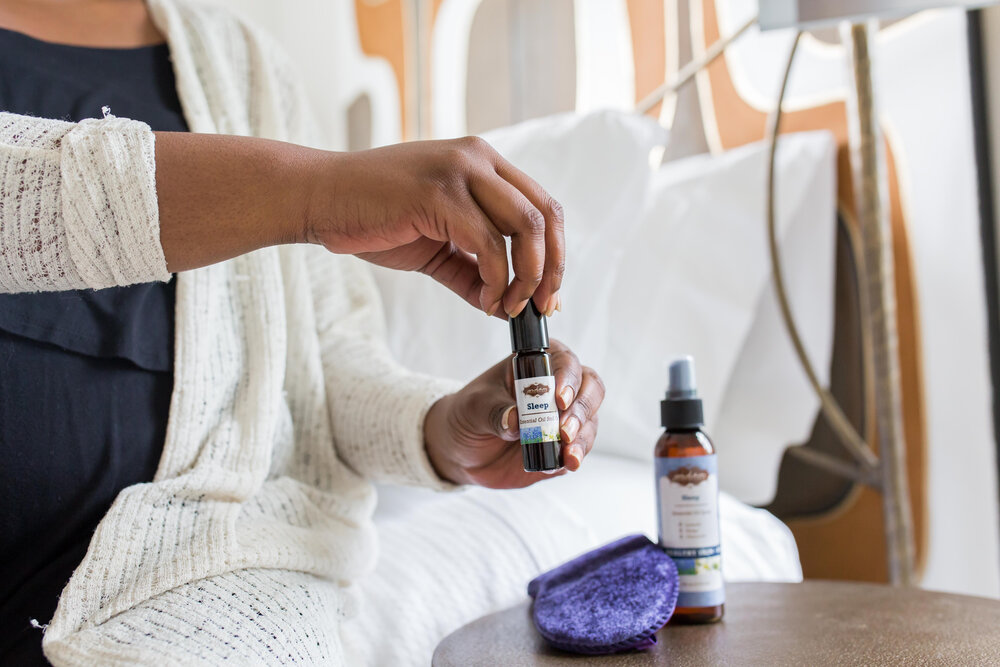No matter how many hours of sleep we get, it always seems that we wake up to that alarm far too early wanting more. Since we aren’t out and about as much as we may be used to (and Daylight Savings is quickly approaching), now is a great time to really focus on our sleeping habits.
As important as it is to get enough sleep at night, it’s almost equally as important to be getting good sleep, so we’re talking quality over quantity. Of course it is still important to be getting the recommended 7-9 hours per night, but if you are waking up multiple times throughout the night, then that just won’t cut it.

Maybe you have issues falling asleep or simply staying asleep; either way, here are some tips to help you get the best night sleep yet.
We all know consistency can be difficult to achieve, but it does play a major role in how well you sleep and your body’s natural tendency to sleep on schedule. Have a set bedtime and wake up time, and you will train your body to be tired and awake at a consistent time of the day. This will help you sleep more soundly through the night.
As tempting as it is to catch up on some ‘zzzs’ on the weekend, stick to your schedule and your internal clock will thank you during the work week.
Have a bedtime routine! Choose to do something that you enjoy and is relaxing every night before bed. This can be taking a warm bubble bath or spending 30 minutes reading your favorite book. Choose a relaxing activity you can do every night and stick to it! This will signal to your body that it is time for bed.
Incorporate essential oils! We love using our Sleep Essential Oil Roll On when we are ready to relax and get some shut eye after a long day. This roll-on features essential oils lavender, neroli, sweet orange, and chamomile.
Simply apply to hands, feet, or temples and breathe deeply before going to sleep. Ages 2+.

Understand your body’s circadian rhythm. Sounds complex, but it is just a formal term for your body’s internal clock. Circadian rhythm is the reason you sleep better when you have a set schedule! Circadian rhythm also explains why you should avoid screens before going to bed.
The rhythm is designed to regulate your body’s natural tendency to be tired and awake. So why should we be avoiding bright lights, such as your TV, phone, etc., at least an hour before bed? Your body correlates light with being awake and dark with being tired. So avoiding your screens at night and exposing yourself to natural light in the mornings will help your body’s internal clock create a consistent sleeping schedule.
Exercise is another way to improve your sleeping habits. This doesn’t mean you need to spend two hours vigorously working out everyday (more power to you if you do!), but even some light physical activity throughout the day can improve your sleep habits. Sometimes life can be busy making it difficult to sneak in some physical activity, but try to work in a 20 minute walk in the morning to get you going and again after lunch to keep you going!
Be aware of what you eat and drink close to bedtime. Limit alcohol consumption before getting ready for bed because although a few glasses of wine with dinner may make you sleepy, too much and it can actually inhibit the quality of sleep you will get. You should also avoid eating overly heavy or spicy meals within 2-3 hours of going to sleep. However, if you are hungry again by bedtime, eat a light snack because you don’t want to try falling asleep hungry.
Like we said earlier, it is important to take some needed time to focus on getting that quality, consistent sleep every night, and you will notice that you begin waking up more rejuvenated and ready to take on the day!
...come to those who sign up for our emails.

Thanks for joining! Look for your first email to arrive soon!
Click an image to Pin